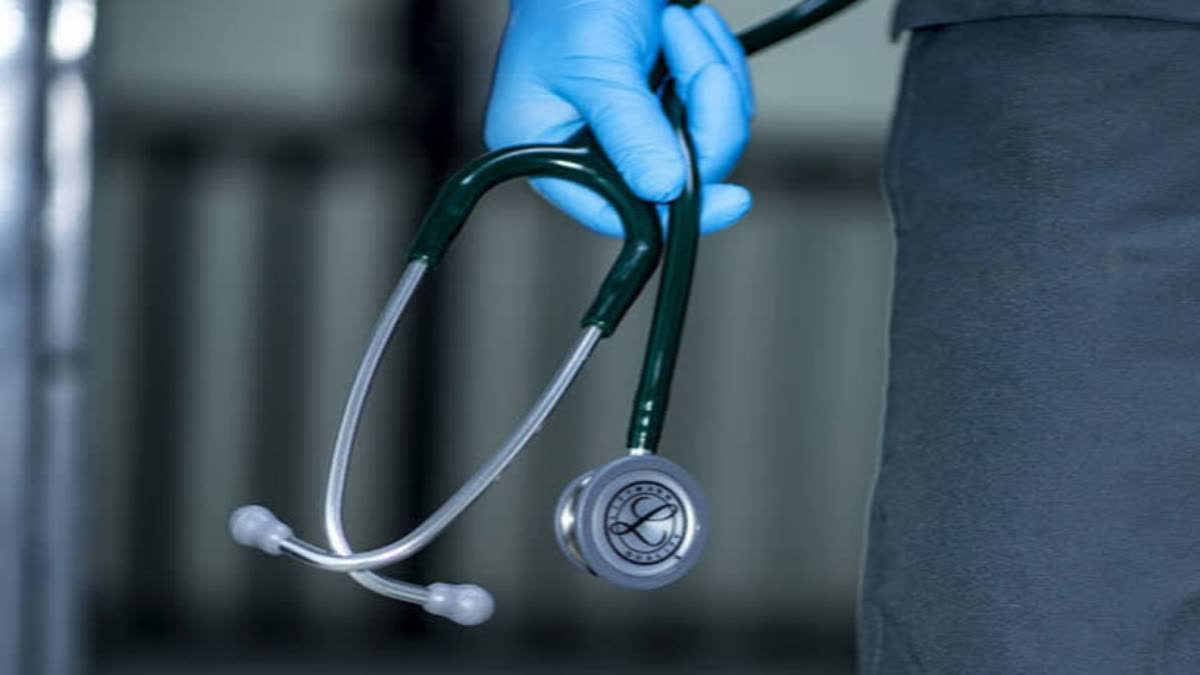New Delhi: Amid a major outrage over Kolkata medical student’s brutal rape and murder incident, a Task Force set up by National Medical Commission (NMC) suggested that all medical institutions should have proper infrastructure and amenities for medical students along with "feel safe and secure environment".
The Task Force chaired by Dr Suresh Bada Math, Professor of Psychiatry & Officer-in-charge of NIMHANS Digital Academy, Bengaluru, also highlighted the regulation of duty hours for students. “Proper infrastructure and amenities are essential for maintaining the physical health and safety of medical students. This includes well-maintained hostels, clean washrooms, safe drinking water, quality food, security measures, recreational facilities and reasonable fees. These basic amenities are critical to maintain proper physical health, feel safe and secure and focus on the intense and demanding medical curriculum,” the Task Force suggested.
The National Task Force on “Mental Health & Well Being of Medical Students”, was set up by the NMC to assess the mental health and well-being of medical students in India and to suggest remedial measures.
While compiling the study, the Task Force found that the environment of medical colleges is vital for fostering a healthy academic and work culture for students, faculty and staff.
“A proactive and compassionate approach from the administration can significantly impact the mental health of medical students. By prioritising mental well-being, institutions contribute to the success and resilience of future healthcare professionals,” it said.
The Task Force has found an alarming rate of mental disorders among medical students. “An alarmingly high 27.8% of undergraduate (UG) students and 15.3% of postgraduate (PG) students voluntarily indicated having a diagnosed mental health disorder and 16.2% of UG students and 31.2% of PG students reported having had suicidal ideation. This degree of mental health disorders, and suicidal ideation combined with students with risk factors call for an aggressive and rapid implementation of interventional programmes,” the Task Force recommended.
It said that the environment in medical colleges is vital to building a healthy academic and work culture for students, faculty and other staff. A proactive and compassionate approach from the administration can significantly impact the mental health of medical students. By prioritising mental well-being, institutions can contribute more to the success and resilience of future healthcare professionals.
The Task Force also suggested regulation of duty hours. The Task Force recommends, based on feasibility, resources and relevance, that residents work not more than 74 hours per week, with no more than 24 hours at a stretch.
“This schedule includes one day off per week, one 24-hour duty and 10-hour shifts for the remaining five days. It is also important for medical students to sleep at least seven to eight hours per day for optimal mental and physical health. Department Heads (HODs), faculty, senior residents Junior Residents (JRs) can collaboratively plan duty hours and roster the duty into three shifts, two shifts, or one shift based on human resource availability.
Additionally, strict adherence to the National Medical Commission (NMC) regulations for a weekly one-day off is crucial. Implementing these measures, where feasible, will help protect the health of medical students and improve patient safety. It is imperative to recognise that post-graduates and interns primarily serve educational purposes rather than filling gaps in healthcare staffing,” the report stated.
It also suggested that the NMC should establish a national portal for grievance redressal called “e-Complaint,” enabling students, faculty and other stakeholders to raise complaints efficiently.
“This user-friendly portal, accessible via web and mobile applications, should feature secure login, standardised complaint submission forms and options to upload supporting documents. A dedicated grievance redressal cell within the NMC, supported by adequate staff, will manage the workflow and deal with the complaints. Complaints will be acknowledged within three working days, reviewed within 14 working days, and resolved within 30 working days, with regular updates provided to the complainant,” the Task Force recommended.
The system will ensure transparency and accountability through periodic reports while maintaining confidentiality. Continuous improvement efforts, including training and awareness programmes, will ensure the e-Complaint system remains effective and responsive to emerging needs, enhancing trust and accountability within medical institutions, it said.



